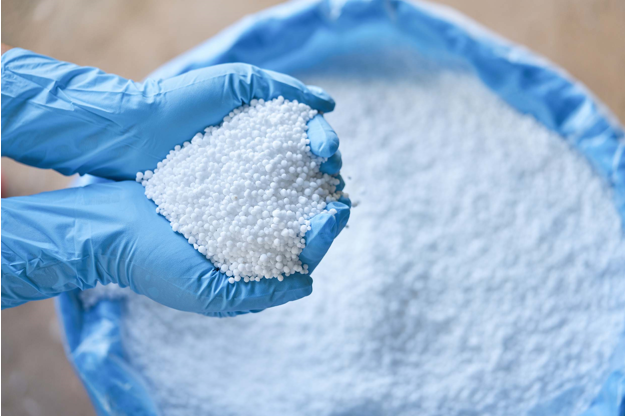
Boosting local urea production key to ensuring food security in Pakistan
Arooj Zulfiqar
To ensure food security and reduce dependency on costly urea imports, there is a dire need for Pakistan to enhance domestic production of this important fertilizer.

“A well-structured long-term strategy focused on bolstering local production and streamlining fertilizer supply can pave the way for a resilient agricultural sector,” underscored Nurullah, Senior Scientific Officer at National Agricultural Research Centre (NARC). “Pakistan’s fertilizer sector faces significant challenges, including an inadequate domestic production capacity that fails to meet a growing demand, leading to dependency on costly imports,” he said. “This reliance exacerbates the country’s trade deficit and exposes farmers to price volatility in the global market,” he said. “Additionally, rising energy costs and outdated manufacturing facilities increase production expenses for local manufacturers, further inflating fertilizer prices.” “Investments in energy-efficient technologies can significantly lower production costs for local manufacturers, making fertilizers more affordable for farmers,” he added.
He further stressed the critical role of urea in ensuring soil fertility and robust crop growth. “Pakistan must develop a comprehensive plan that focuses on increasing domestic production and optimising supply chains,” he said. “Urea pricing disparities across the country have long been a challenge for farmers. The lack of a uniform pricing mechanism across regions also allows middlemen to exploit price disparities, burdening farmers and destabilising market dynamics,” he pointed out. Nurullah said: “Therefore, implementing a nationwide uniform pricing mechanism to prevent middlemen from exploiting regional differences is necessary.” He added that the escalating cost of fertilizers poses a serious threat to food security and economic stability.
“Addressing these challenges requires a comprehensive and multifaceted approach. Government subsidies or targeted support are essential to ensure affordability for farmers. Without timely interventions, the rising costs could discourage fertilizer usage, leading to lower yields and compromised food security.” “Furthermore, fostering public-private partnerships can mobilise resources and expertise to expand domestic production, while government subsidies or targeted financial support programmes can make fertilizers more affordable for farmers. By prioritising self-reliance and strategic planning, Pakistan can not only stabilise its fertilizer supply but also build a resilient agricultural sector capable of ensuring food security and economic growth,” stressed the NARC scientist.
Credit: INP-WealthPk
Comment / Reply From
Popular Posts
Newsletter
Subscribe to our mailing list to get the new updates!



